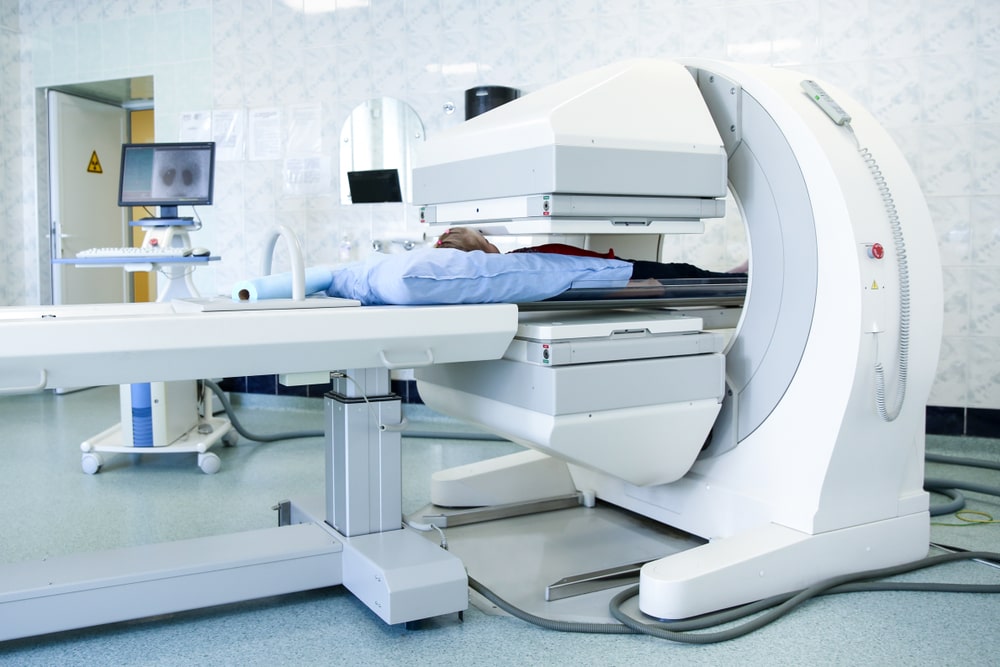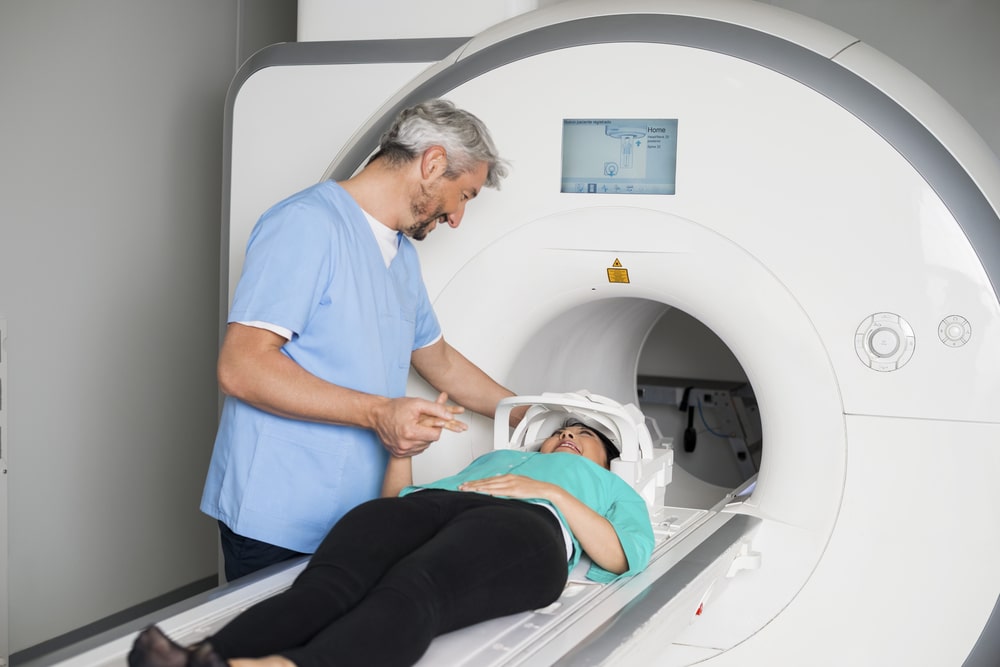Nuclear Medicine
Nuclear Medicine or Molecular Imaging is the practice of medicine / radiology using small doses of radioactive materials (radio pharmaceuticals) to image the body. Nuclear Medicine provides mostly functional and metabolic information of the body with limited anatomic information. The metabolic information obtained is then used to make a proper diagnosis.
The radioactive drugs given to patients migrate throughout the body and accumulate in areas of abnormal tissue. Patients are then later scanned next to a complex nuclear medicine camera, which is integrated with computers to view any abnormalities. The amount of radiation in a typical nuclear imaging procedure is comparable with routine diagnostic x-ray procedures and is very safe. These studies have been performed for decades without adverse consequences.


As with all radiological procedures patients should inform the technologist if there is any chance of pregnancy.
There is little or no preparation for most nuclear medicine examinations. If the procedure involves gastric emptying, fasting prior to examination is required. For exams involving the kidneys you will be asked to drink fluids prior to the procedure. Patients scheduling thyroid examinations should consult their physician for appropriate preparation. For 24 hours following a nuclear imaging study most patients are instructed to drink plenty of fluids. The residual radioactive material decays normally and passes out of the body though the urine and stool.
For all examinations including: I123, I123 Ablation, Stess Test, Hida Scan, Thyroid, Liver Spleen, Whole Bone Scan, etc. Please call for proper preparation.


